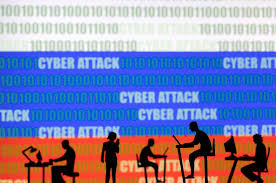Russia has emerged as a significant player in the global cyber threat landscape. Its state-sponsored hacking groups have been implicated in a series of high-profile cyberattacks targeting critical infrastructure, government agencies, and businesses worldwide.
Key Russian Cyber Tactics
- Advanced Persistent Threats (APTs): These long-term, targeted attacks compromise networks and steal sensitive information.
- Malware Attacks: Malicious software designed to disrupt systems, steal data, or hold systems hostage for ransom.
- Denial-of-Service (DoS) Attacks: Overwhelming systems with traffic to render them inaccessible.
- Data Breaches: Stealing sensitive data, such as personal information, financial data, and intellectual property.
- Disinformation Campaigns: Spreading false information and propaganda online to manipulate public opinion and sow discord.
Notable Russian Cyberattacks
- NotPetya: A devastating ransomware attack that affected businesses and organizations worldwide.
- WannaCry: A global ransomware attack that crippled computer systems in various countries.
- SolarWinds Hack: A massive cyberattack that compromised numerous US government agencies and private companies.
Motivations for Russian Cyberattacks
- Espionage: Gaining access to sensitive information, such as military secrets and economic data.
- Economic Espionage: Stealing intellectual property and trade secrets.
- Cyber Warfare: Disrupting critical infrastructure and undermining the adversary’s capabilities.
- Political Influence: Manipulating public opinion and interfering in elections.
Countering Russian Cyber Threats
To mitigate the threat of Russian cyberattacks, governments and organizations must adopt a comprehensive approach:
- Strong Cybersecurity Measures: Implementing robust cybersecurity measures, including regular software updates, strong passwords, and network security.
- International Cooperation: Collaborating with other countries to share information and coordinate responses to cyber threats.
- Cyber Diplomacy: Engaging in diplomatic efforts to establish norms of behavior in cyberspace and reduce the risk of cyber conflict.
- Cyber Deterrence: Developing strong cyber defense capabilities and demonstrating the willingness to respond to cyberattacks.
- Public Awareness: Educating the public about cyber threats and how to protect themselves online.
By understanding the tactics and motivations behind Russian cyberattacks, we can better prepare to defend against these threats and safeguard our digital infrastructure.

Leave a Reply